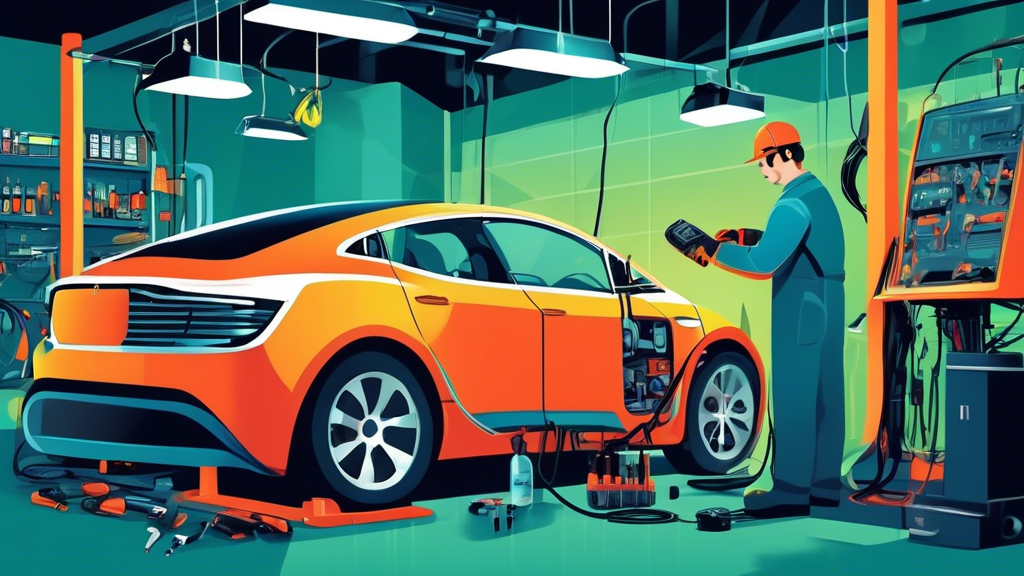
Understanding the Fundamentals of Electric Car Maintenance
Electric cars (EVs) are celebrated for their efficiency, environmental friendliness, and cutting-edge technology. However, like any vehicle, an electric car requires regular maintenance to ensure longevity, safety, and optimal performance. The maintenance needs of electric cars are distinctly different from those of their gasoline-powered counterparts. Understanding these needs can help EV owners keep their vehicles in top condition while potentially saving money and time.
Basic Electric Car Maintenance Needs
At the core of its maintenance requirements, an electric car demands attention to its battery, tires, brakes, and electrical components. Unlike traditional cars, electric vehicles don’t need oil changes, fuel filters, spark plugs, or emission checks, which often makes maintenance more straightforward and less frequent.
Battery Care
The battery is the heart of an electric vehicle. It’s also the most expensive component to replace, making it crucial to maintain. To prolong your battery’s life, avoid exposing it to extreme temperatures for long periods. Using fast-charging stations exclusively can also degrade your battery quicker than standard charging. It’s recommended to regularly monitor your battery’s health through your vehicle’s diagnostic features or professional check-ups to ensure it operates efficiently.
Tire Maintenance
Tires are critical to the safety and efficiency of any vehicle, and electric cars are no exception. Due to the instant torque delivered by electric motors and the additional weight of EVs from their batteries, tires might wear down quicker than those on gasoline cars. Regularly check your tire pressure and alignment. Correct tire pressure is essential for extending tire life, improving vehicle safety, and conserving energy.
Brake System
Many electric cars come equipped with regenerative braking systems that help reduce wear on brake pads and rotors by using the electric motor to slow the car, turning kinetic energy back into stored energy in the battery. Regular brake system checks are advisable to ensure everything is operating correctly, as brake fluid still needs to be replaced according to the manufacturer’s recommendations.
Electrical System and Software Updates
The electrical system, including the motor and associated electronics, requires minimal regular maintenance. However, keeping the software of an electric vehicle up to date is crucial. Manufacturers regularly release software updates that can improve vehicle performance and battery management and even add new features to your car. These updates can often be done at home and are a simple way to ensure your vehicle stays in peak condition.
Professional Inspections and Self-Maintenance Tips
While much of electric car maintenance can be handled by the owner, such as tire and pressure checks, it’s wise to have the vehicle inspected by a professional regularly. They can thoroughly examine the battery health, electrical system, and other components that may be harder for the average owner to assess. Additionally, always refer to your vehicle’s owner’s manual for specific guidance on maintenance intervals and procedures. This resource is invaluable for keeping your electric car running smoothly.
Conclusion
Maintaining an electric vehicle involves a distinct set of tasks compared to traditional gasoline cars. By focusing on battery care, tire maintenance, brake system checks, and software updates, you can ensure your EV operates efficiently and safely and lasts for years. With the reduced need for traditional maintenance and the eco-friendly nature of electric cars, it’s an exciting time to be an EV owner.
